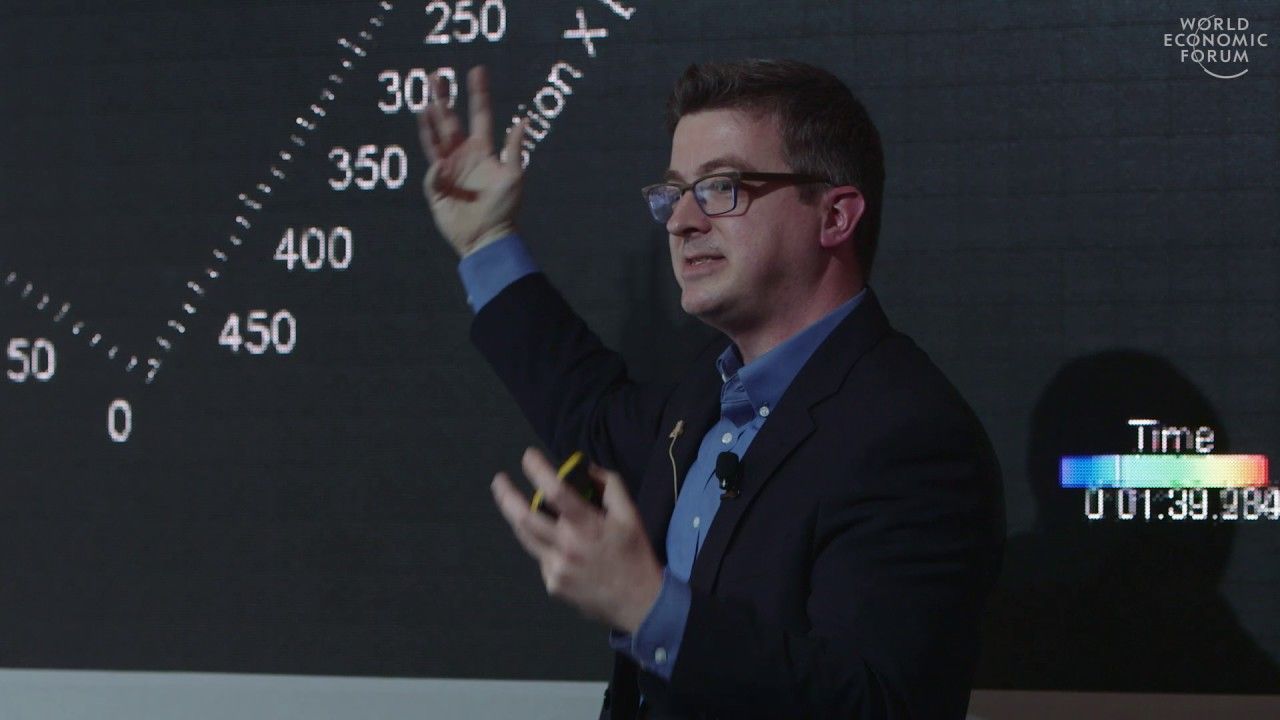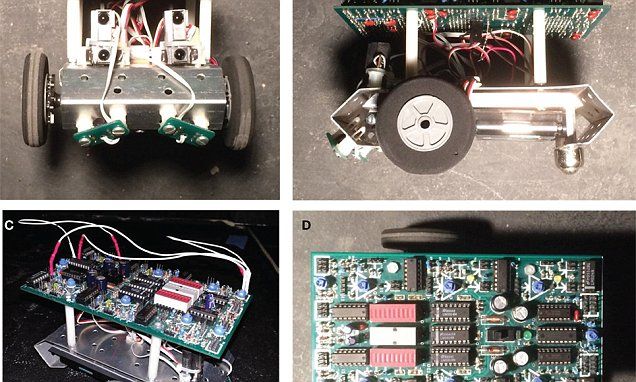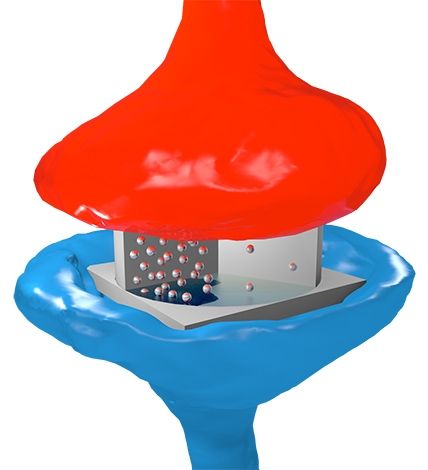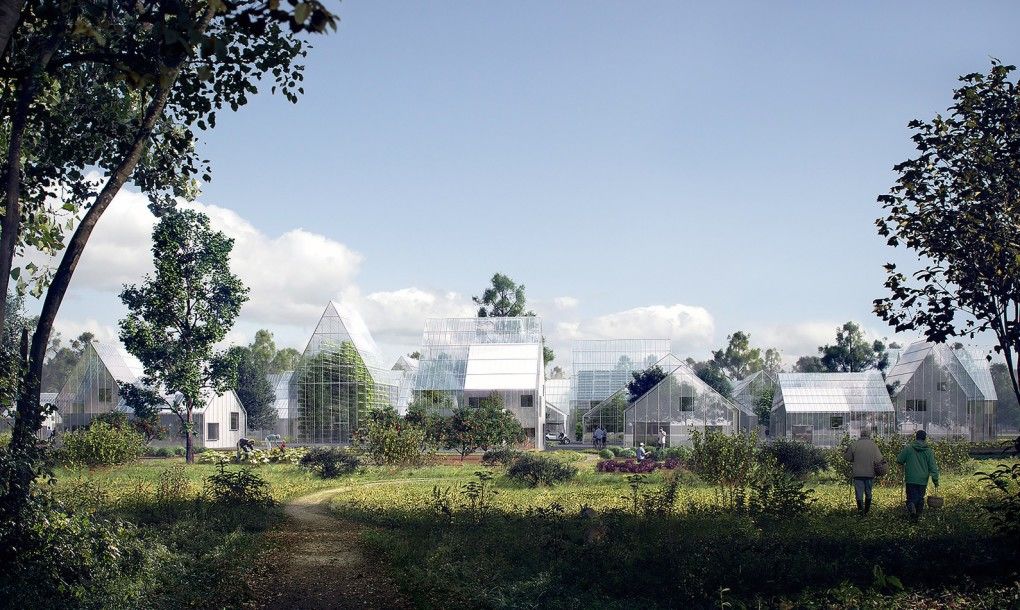Page 9930
Apr 6, 2017
Towards an Artificial Brain
Posted by Carse Peel in categories: biological, ethics, information science, neuroscience, robotics/AI

The fast-advancing fields of neuroscience and computer science are on a collision course. David Cox, Assistant Professor of Molecular and Cellular Biology and Computer Science at Harvard, explains how his lab is working with others to reverse engineer how brains learn, starting with rats. By shedding light on what our machine learning algorithms are currently missing, this work promises to improve the capabilities of robots – with implications for jobs, laws and ethics.
Apr 6, 2017
Electronic synapses that can learn : towards an artificial brain?
Posted by Carse Peel in categories: biological, particle physics, robotics/AI
© Sören Boyn / CNRS/Thales physics joint research unit.
Artist’s impression of the electronic synapse: the particles represent electrons circulating through oxide, by analogy with neurotransmitters in biological synapses. The flow of electrons depends on the oxide’s ferroelectric domain structure, which is controlled by electric voltage pulses.
I will be participating in London #Spaceapps2017
Participant registration for #SpaceApps 2017 is now open. Develop solutions for problems in space & on Earth. Sign up: 2017.spaceappschallenge.org/locations
Apr 6, 2017
JUVENESCENCE : Investing in the age of Longevity
Posted by Brett Gallie II in category: life extension
I enjoy meeting authors to discuss their ideas and I met Jim Mellon at the Master Investor show and purchased his book called Fast Forward: The.
Apr 6, 2017
U.S. Transhumanist Party Discussed
Posted by Zoltan Istvan in categories: geopolitics, governance, transhumanism
New article by Transhumanist Party:
Gennady Stolyarov II
The Spring 2017 issue of the magazine Issues in Science and Technology, published by the National Academy of Sciences, features an article by Professor Steve Fuller, the Auguste Comte Chair in Social Epistemology in the Department of Sociology at the University of Warwick in the United Kingdom. This article, entitled “Does this pro-science party deserve our votes?” discusses the Transhumanist Party from the time of Zoltan Istvan’s 2016 run for President.
In this article, which offers both positive discussion and critiques of Istvan’s campaign, Professor Fuller writes:
Apr 6, 2017
Living Off The Grid: This Utopian Village starts to produce its own food and energy in 2018
Posted by Klaus Baldauf in categories: energy, food, habitats, sustainability
Off-grid housing that actually works for families is hard to come by, but that’s what ReGen Villages is striving towards with their concept for new self-sustaining communities.
The startup real estate company has a dream to create regenerative communities that not only produce their own food but also generate their own power, meaning what’s usually only possible for rural areas with renewable energy sources would be a reality for people that want these luxuries while having close neighbors.
This idea is more than just a dream, however, as the development company has its sights on their first site in Almere, Netherlands with the goal of opening it in 2018.
Apr 6, 2017
RegenVillages: Holding, B.V R-Gen, Incorporated — Delaware C-Corp ReGen Labs — non-profit research in resiliency and regenerative system design
Posted by Klaus Baldauf in category: futurism
Holding, B.V. R-Gen, Incorporated — Delaware C-Corp ReGen Labs — non-profit research in resiliency and regenerative system design.
Apr 6, 2017
The Nonparametric Intuition: Superintelligence and Design Methodology
Posted by John Cassel in categories: engineering, machine learning
I will admit that I have been distracted from both popular discussion and the academic work on the risks of emergent superintelligence. However, in the spirit of an essay, let me offer some uninformed thoughts on a question involving such superintelligence based on my experience thinking about a different area. Hopefully, despite my ignorance, this experience will offer something new or at least explain one approach in a new way.
The question about superintelligence I wish to address is the “paperclip universe” problem. Suppose that an industrial program, aimed with the goal of maximizing the number of paperclips, is otherwise equipped with a general intelligence program as to tackle with this objective in the most creative ways, as well as internet connectivity and text information processing facilities so that it can discover other mechanisms. There is then the possibility that the program does not take its current resources as appropriate constraints, but becomes interested in manipulating people and directing devices to cause paperclips to be manufactured without consequence for any other objective, leading in the worse case to widespread destruction but a large number of surviving paperclips.
This would clearly be a disaster. The common response is to take as a consequence that when we specify goals to programs, we should be much more careful about specifying what those goals are. However, we might find it difficult to formulate a set of goals that don’t admit some kind of loophole or paradox that, if pursued with mechanical single-mindedness, are either similarly narrowly destructive or self-defeating.
Suppose that, instead of trying to formulate a set of foolproof goals, we should find a way to admit to the program that the set of goals we’ve described is not comprehensive. We should aim for the capacity to add new goals with a procedural understanding that the list may never be complete. If done well, we would have a system that would couple this initial set of goals to the set of resources, operations, consequences, and stakeholders initially provided to it, with an understanding that those goals are only appropriate to the initial list and finding new potential means requires developing a richer understanding of potential ends.
Continue reading “The Nonparametric Intuition: Superintelligence and Design Methodology” »
Apr 6, 2017
This new application of layered neural nets is about to make Photoshop amazing
Posted by Shane Hinshaw in category: neuroscience
This new tool uses “semantic segmentation” to bring a whole new level of power to image editing.
















